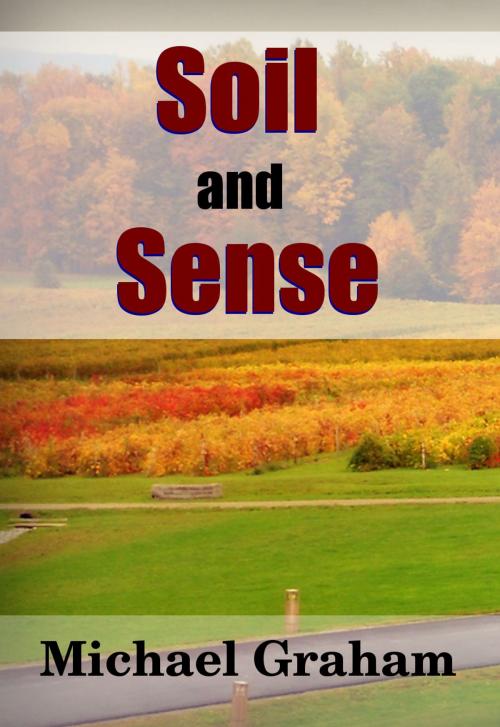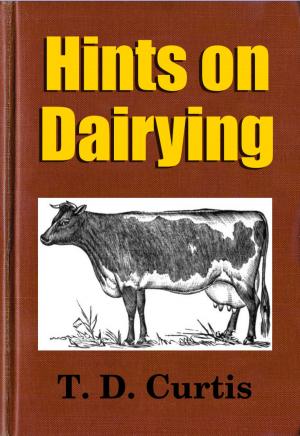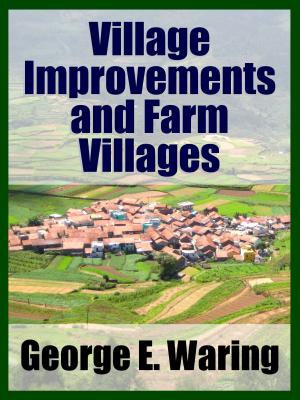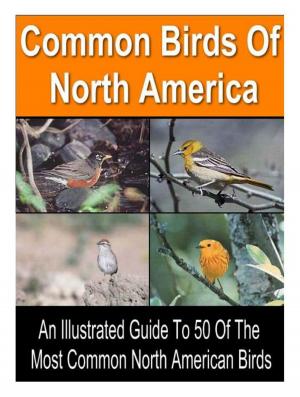Soil and Sense
Nonfiction, Science & Nature, Nature, Animals, Mammals, Environment, Ecology, Technology, Agriculture & Animal Husbandry| Author: | Midwest Journal Press, Michael Graham, Dr. Robert C. Worstell | ISBN: | 9781312940437 |
| Publisher: | Midwest Journal Press | Publication: | February 28, 2015 |
| Imprint: | Language: | English |
| Author: | Midwest Journal Press, Michael Graham, Dr. Robert C. Worstell |
| ISBN: | 9781312940437 |
| Publisher: | Midwest Journal Press |
| Publication: | February 28, 2015 |
| Imprint: | |
| Language: | English |
Here is. the crux of the matter, as I see it. The food for men cannot be grown unless the land is also fed. That goes almost without saying. It is also true that the folded sheep are reduced in number and that the great heaps of dung from the bullock yards are not so common as they were. These were the stores of fertility that the country, mainly relied on, but we do not hear that they are to be restored. Instead there is talk of ploughing-out grassland, and of the proper use of fertilizers. I find that insubstantial.
On the face of it there is a case for serious inquiry. Perhaps someone knows that the land is being fed rightly, 'but no-one has explained it to me and I cannot find that anyone else is better informed.
I searched the public library for a short book that would give the key to this puzzle, but I did not find what I wanted. There were indeed some good books by good scientists and they are in my list of references at the end of this book, but they each dealt with only a part of the problem. For example, books that described the soil bacteria made no mention of landlords.. The popular books on agriculture included novels, biographies, and essays, but these all avoided technical details, and it is difficult to state or solve a practical problem without setting it against a background of details.
Because I found no one book I had to wrestle out the problem for myself, from various books and with the help of such experience of the land as a man may gain in his leisure. This, then, is a short book on the central problem of agriculture, that is the quality of soil.
154pg.
FIrst published 1941
Here is. the crux of the matter, as I see it. The food for men cannot be grown unless the land is also fed. That goes almost without saying. It is also true that the folded sheep are reduced in number and that the great heaps of dung from the bullock yards are not so common as they were. These were the stores of fertility that the country, mainly relied on, but we do not hear that they are to be restored. Instead there is talk of ploughing-out grassland, and of the proper use of fertilizers. I find that insubstantial.
On the face of it there is a case for serious inquiry. Perhaps someone knows that the land is being fed rightly, 'but no-one has explained it to me and I cannot find that anyone else is better informed.
I searched the public library for a short book that would give the key to this puzzle, but I did not find what I wanted. There were indeed some good books by good scientists and they are in my list of references at the end of this book, but they each dealt with only a part of the problem. For example, books that described the soil bacteria made no mention of landlords.. The popular books on agriculture included novels, biographies, and essays, but these all avoided technical details, and it is difficult to state or solve a practical problem without setting it against a background of details.
Because I found no one book I had to wrestle out the problem for myself, from various books and with the help of such experience of the land as a man may gain in his leisure. This, then, is a short book on the central problem of agriculture, that is the quality of soil.
154pg.
FIrst published 1941















